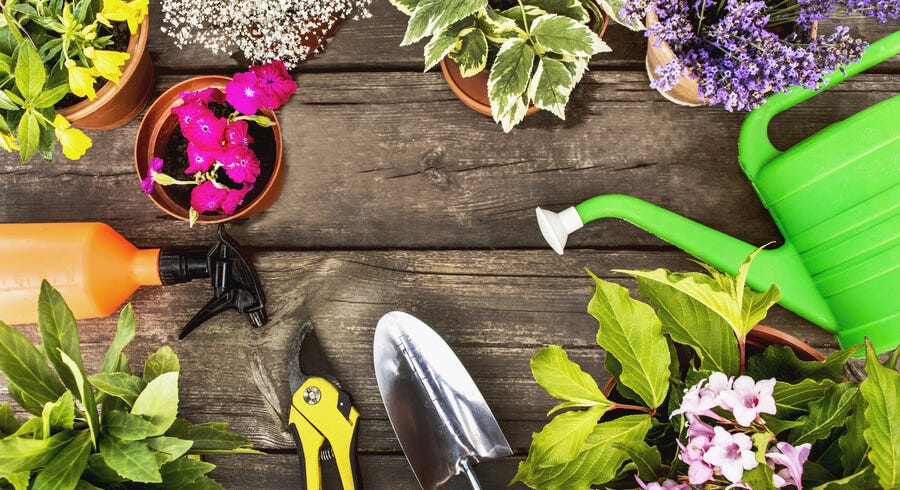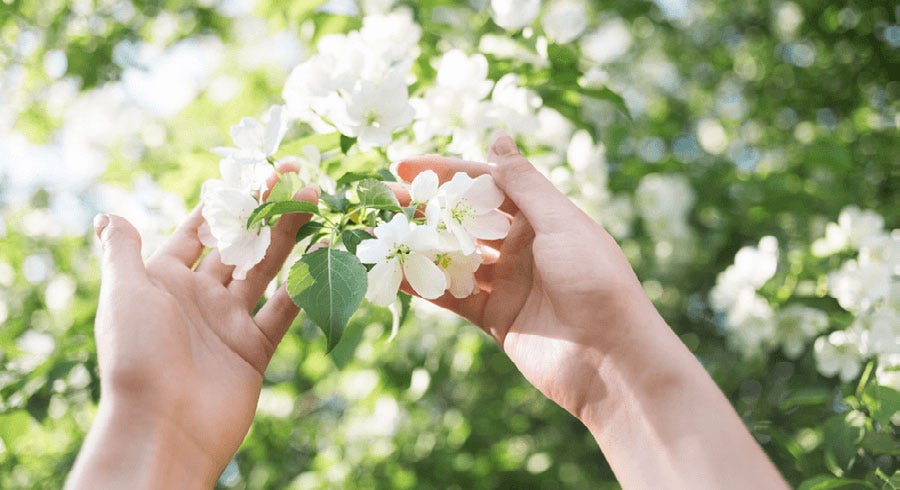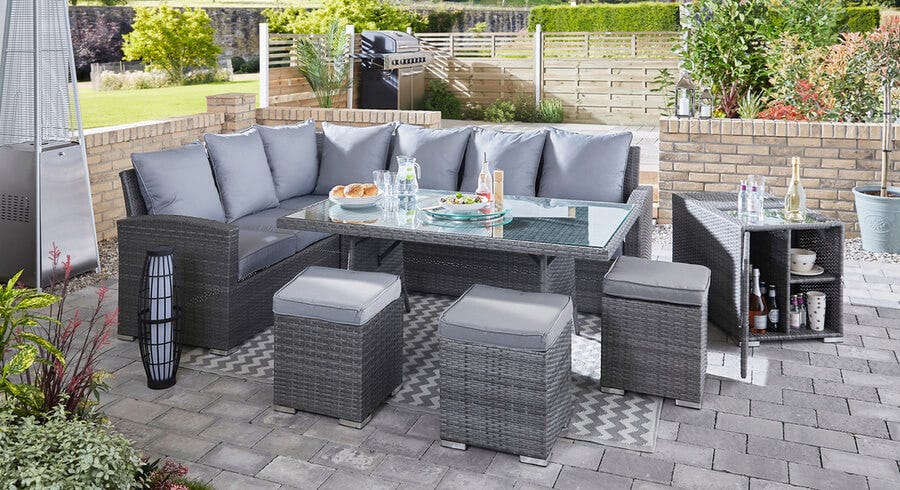Style an Eco-friendly Garden


We’re all becoming ever-more mindful of the environment and most of us are aiming to do our bit to help improve things by trying to live in a more sustainable way.
Gardening is one of those activities which can either do very much to nurture and protect the world of nature or – on the other hand – inflict quite a bit of harm if we choose the wrong methods. Check out our Eco Shop for garden and outdoor products you'll love, and read on to explore other ways you can style a more eco-friendly garden.
Say no to harmful chemicals


One of the most damaging things we can do in the great outdoors is pump it full of chemicals. What’s it worth if our own plants look lovely and green but the waterways and other surrounding areas are full of poison, which insects, birds and animals might also ingest. For many gardeners, the temptation to use harsh pesticides and herbicides is strong, especially when prized plants seem to be under attack from all angles, but there are some great eco-friendly alternatives out there.
A spiral fly trap is an eco-friendly, insecticide-free way to control pesky whitefly and other small critters which love to feast on Brassicas and other veg before they even get a look in at your own dining table. There are four traps in the pack, each effective for up to 2 months and suitable for use both indoors or outside. The packaging is also made from recycled materials.
You can also hang sticky fly-paper close to tasty green shoots to help keep clouds of flies at bay. For keeping zoomers completely out of the house or greenhouse when hot days call for open doors, try an easy to fit magnetic insect screen which bars all unwelcome entries! There is also a version for windows, designed to fit most shapes and sizes and enabling you to enjoy a cooling breeze without being bothered by flies.
For something a bit more decorative there is this Green Protect Fruit Fly Trap, which can be left dangling in fruit trees where it will unobtrusively fool predators into steering clear of your apples.
If you really think you can’t get by without weedkiller, especially on paths and patios which need to be kept pristine, try a glyphosate-free option which will give you visible results in under an hour.
Planting for wildlife


Bees, butterflies and bugs of all shapes and sizes call our gardens home - so one way we can style an eco-friendly garden is to help them feel welcome by planting lots of plants that are creepy crawly-friendly. Not sure what to choose? Don’t worry - the team at Mr Fothergill’s have created a special seed mix that will bloom into butterfly-friendly flowers, and they have lots more bee-friendly options, all of which can be sown directly into flower beds and pots for a burst of summer colour.
Cornflowers are a favourite for cottage gardens all around the country, being fast and easy-to-grow flowers which are very attractive for pollinators and will bring a fabulous splash of colour to your garden through the summer months.
Ox Eye Daisies are another delight of the traditional English garden, perfect for both sunny borders and areas given over to rewilding, they will help bring your plot to life by attracting lots of butterflies and bees. Expect to see them throughout the spring and early summer.
To bring even more joy to your bees, plant the magnificent Foxglove Excelsior, whose tall and beautiful flowers are practically a luxury spa for the garden’s busiest helpers and will make a wonderful impact when they come to full bloom. Sunflowers are also adored by bees and butterflies alike, who won’t be able to stay away from these open, sun-loving flower heads when they come out in summer.
You can also ensure your lawns are friendly to all living things by keeping it in the best possible condition with organic lawn feed, which will give you a luscious lawn in a few short months, without introducing any nasty chemicals to the grass where your children and pets might be playing.
Check out our blog for more great ideas: 16 Top Tips for Attracting Wildlife to Your Garden.
Organic plant food


Growing your own the organic way is not just about steering clear of harsh chemical pesticides and weed killers, it’s also about feeding your plants with eco-friendly and organic nutrition. To get things off to the best possible start use natural rooting powder when establishing both edible and ornamental plants – either in the house or outdoors - to promote healthy root development.
Once plants have established, you can help super-size them with organic all purpose plant food, which will help you grow plants that are twice the size as they would otherwise be without such mega nutrition. This 100% natural feed will give visible results just a week after application.
For delicious organically grown tomatoes, try this natural feed enriched with seaweed and magnesium, for the best full-flavoured fruit. For a mixture of plants, another all natural, seaweed-based feed will maximise growth by improving the soil’s fertility, promoting the development of strong and healthy plants from germination onwards.
Raising the stakes


For all-round enhanced sustainability, we also have a range of raised beds and sturdy outdoor planters made entirely from FSC-certified treated wood. We also have planters made entirely from recycled plastic. The beds are available in large to medium-sized square or oblong shapes, plus we have a smaller square version which can also be used as a planter for decorative flowers, bushes or small trees.
Once you’ve got things planted, a lot of fruit and veg needs a bit of extra support, which you can give them the eco way with these bamboo canes in 1.2m or 1.8m sizes - perfect for holding up raspberries and peas. You can also become that little bit more eco by replacing nylon twine with biodegradable jute.
Keep the green cycle going with this 400L King Composter made from 100% recycled materials, which offers the ideal solution for composting food and garden waste. This is easy to assemble and doesn't require tools.
With these tips, a more eco-friendly garden is yours in the making. It’ll be a happier place for the wildlife, the plants and, with the satisfaction of having created it - you too.










